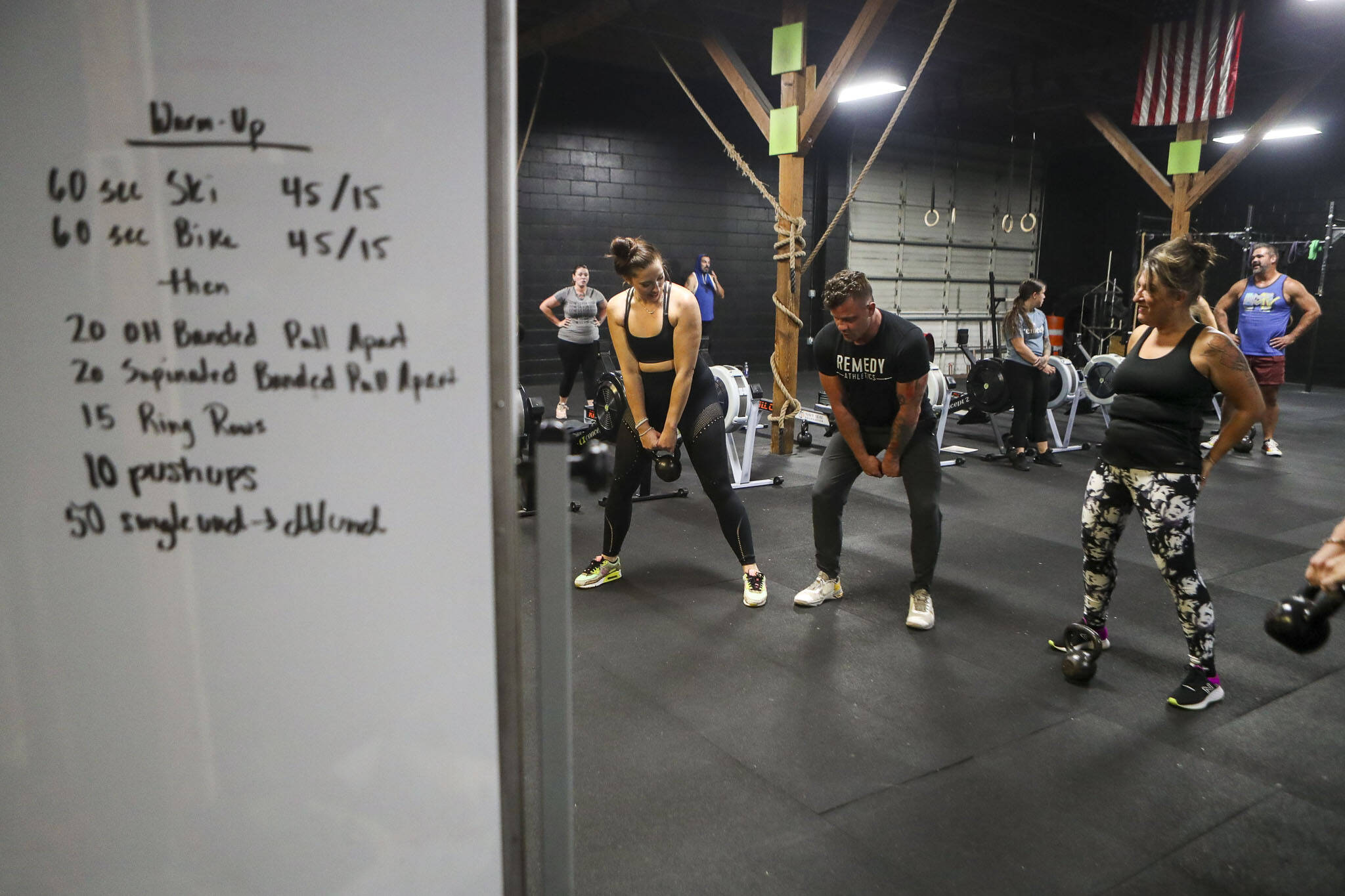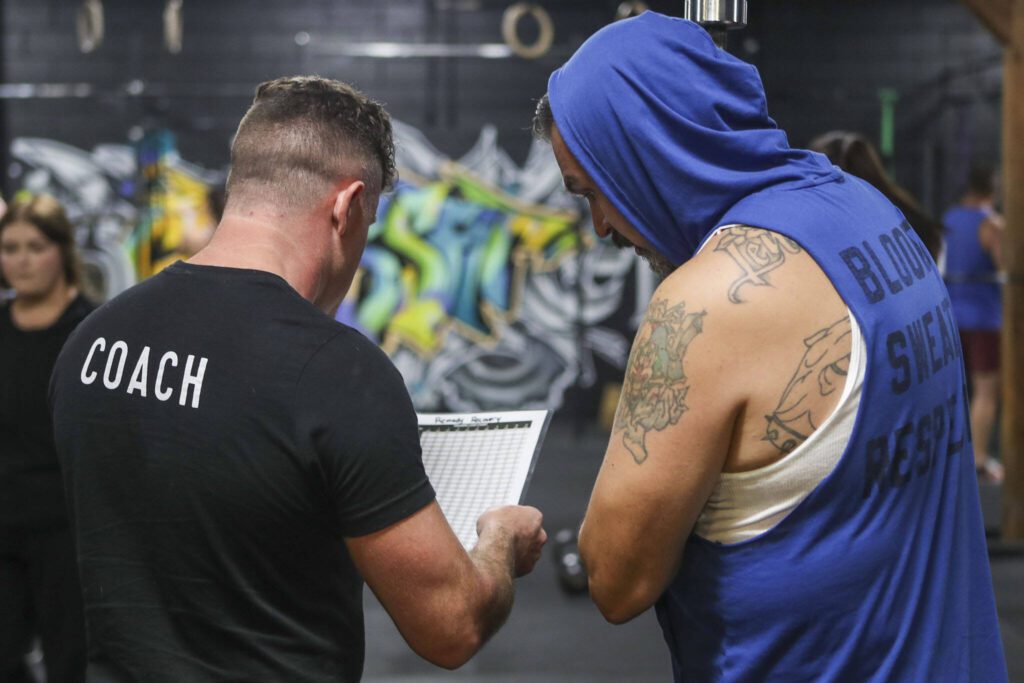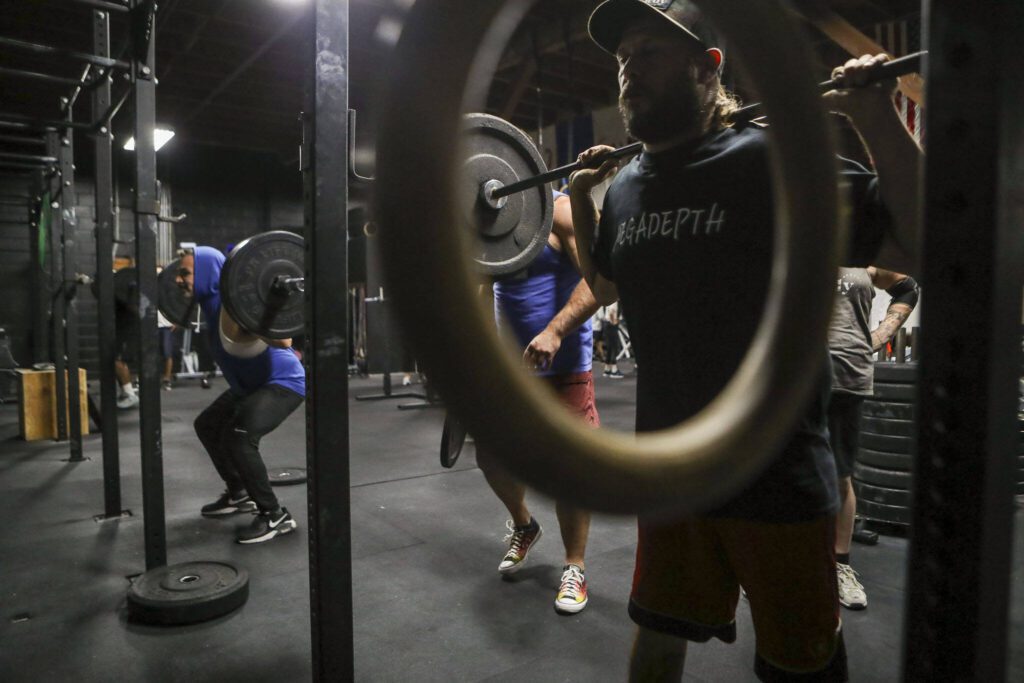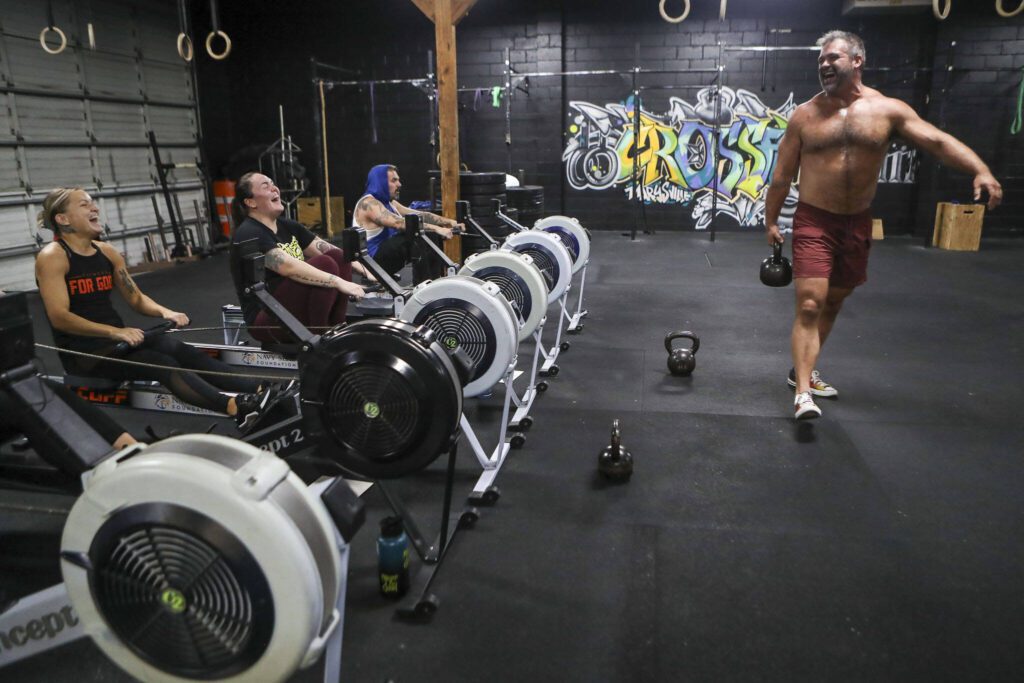MARYSVILLE — Four years ago, Harrison Wolff couldn’t have seen himself where he is today.
Wolff was addicted to alcohol and going to a treatment program for help.
“I was on the liver transplant list,” he said. “I had nothing to my name.”
Today, he is four years sober. He has a wife and kid. He bought a house. And he coaches CrossFit, a job he calls his “dream.”
Wolff leads a class three times a week at Remedy Athletics in Marysville for people recovering from substance use disorder to work out and meet people with similar experiences — at no cost.
The only requirement is 24 hours of sobriety.
Whether someone is behind on bills, spending money on court payments or treatment, looking for a job or just out of money, Wolff doesn’t want to make people pay.
“When you get out of treatment or you’re newly sober, you don’t have money,” Wolff said.
At the start of a Remedy Recovery CrossFit practice, participants stand in a circle to say their name and the date they began their sobriety. Attendees come from around the county. Some have several years under their belt, with others only having a few weeks or months.
The camaraderie between the athletes is clear. Attendees high-five and fist-bump each other throughout the one-hour practice. Some give each other tips on their weightlifting form, while others, still out of breath from their own workout, cheer people on for finishing a hard set.
Wolff floats around the room, guiding his students through the moves, correcting mistakes when he sees them.
He began teaching the class earlier this year after inheriting it from another coach.
He went through a treatment program at Northpoint in Edmonds. There, the program integrated CrossFit in the process.
Wolff didn’t like it at first because of a stigma that CrossFit is dangerous. But over time, he began to understand the fundamentals and how to work out safely.
“As soon as I got out of treatment, I went and found a CrossFit gym,” he said. “Ever since then, it’s changed my life.”
When Wolff started teaching, he only saw one or two people per class. This month, he’s seeing record numbers of people joining. His class record is 19.
Wolff used donations to print out flyers and business cards promoting the class. Word of mouth has been the driver of attendance and donations, he said.
Sarah Sewares has been attending the classes since Wolff started. On some days, it was just the two of them.
Sewares has transformed since starting the classes. In January, she had just given birth to her child and was trying to maintain her sobriety.
The classes have taught her discipline, she said. Since starting, she has lost over 60 pounds.
CrossFit is intense, Wolff said. It combines weightlifting and cardio at high intensity paces and intervals.
A lot of people don’t stick around for that reason. But those who do get stronger and improve their mental health and confidence, Wolff said.
“When I first got sober, I didn’t want to go to meetings, I wasn’t confident enough in my own skin,” he said.
But the feeling of accomplishment after completing a difficult workout is rewarding and gives the participants a sense of pride, he said.
Cecilia Jones tried out other CrossFit gyms before going to Remedy Athletics. No one supported her like Wolff and his fellow coaches.
Since going to the Remedy Recovery sessions, she has been able to compete in weightlifting competitions through the gym.
Unlike past experiences, the coaches here believed in her, Jones said.
Wolff said helping people get sober and stay sober helps his own journey.
“There’s all these things you can do just by showing up and working out and working a 12-step program,” he said.
Once the hour is up and the practice is over, Wolff and his athletes often take a walk around the block. It is their way of cooling down after a tough practice and talking about something other than CrossFit. On the sidewalk under the street lamps, the attendees laugh with each other, their energy high after the intense workout.
Wolff has big aspirations for Remedy Recovery. The class was approved to become a nonprofit last week. Now, tax-exempt donations and grants will keep the business afloat.
At some point, he wants his own building. There, he can lead his own recovery meetings. He also wants to incorporate nutrition and teach people about meal planning.
“Getting sober, you need nutrients and CrossFit burns a lot out of your body,” he said.
Ideally, his building would have 24-hour access, he said, to help people at any time.
“If I can give as much passion that I hold into one of them,” Wolff said, “then I know that I’ve done my job.”
Interested in joining?
Remedy Athletics is located at 1528 3rd St. in Marysville. Remedy Recovery meets on Tuesdays, Wednesdays and Fridays from 6:30 to 7:30 p.m. Donations are welcome.
Jenelle Baumbach: 360-352-8623; jenelle.baumbach@heraldnet.com; Twitter: @jenelleclar.
Talk to us
> Give us your news tips.
> Send us a letter to the editor.
> More Herald contact information.





























